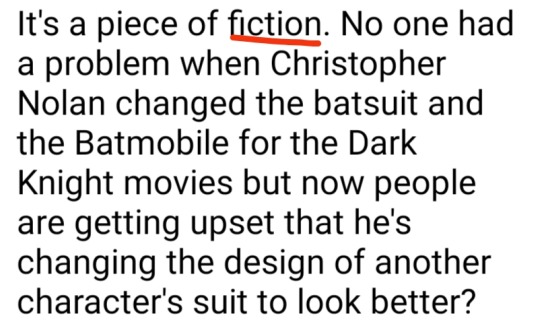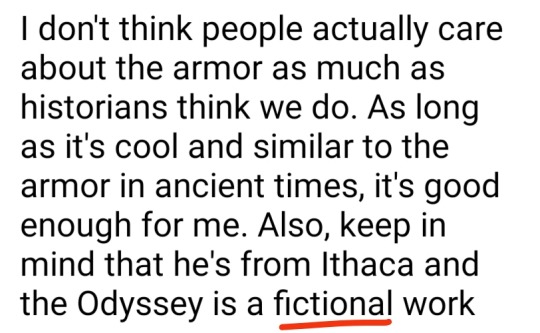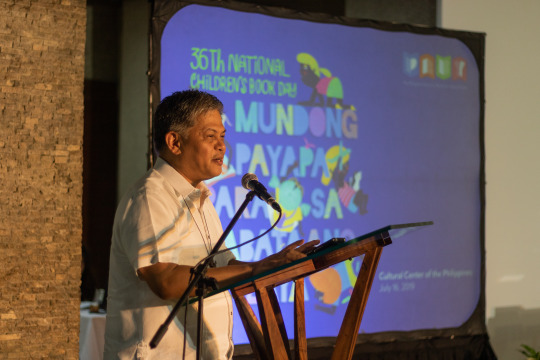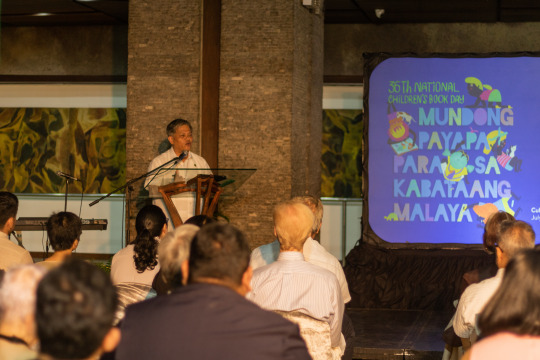#all i am asking is respect to the source material and the legacy we Greeks try to preserve
Explore tagged Tumblr posts
Text
Stop Treating Greek Mythology Like Just Another Fictional Franchise



I am honestly tired of seeing people lump Greek mythology into the same category as DC Comics, anime, or any other modern fictional universe. There’s this frustrating trend where people discuss figures like Odysseus or Achilles in the same breath as Batman or Goku, as if they’re just characters in a long-running franchise rather than deeply rooted cultural and literary icons from one of the most influential civilizations in history.
Yes, myths contain fantastical elements—gods turning into animals, heroes slaying monsters, mortals being punished or rewarded in ways that defy logic. But that does not mean Greek mythology is the same as a modern fantasy novel. These myths were part of an entire civilization’s identity. The ancient Greeks didn’t just tell these stories for entertainment; they used them to explain the world, explore human nature, justify traditions, and even shape their religious practices. The Odyssey isn’t just an adventurous tale about a guy struggling to get home—it’s a reflection of Greek values, an exploration of heroism, fate, and the gods' role in human life. When people treat it as nothing more than “fiction,” they erase the cultural weight it carried for the people who created it.
Greek mythology functioned in antiquity—these were their sacred stories, their way of making sense of the universe. And yet, people will still argue that the Odyssey is no different from a DC Elseworlds story, as if it was just an early attempt at serialized storytelling rather than a cornerstone of Western literature.
Part of the problem comes from how myths have been adapted in modern media. Hollywood and pop culture have turned Greek mythology into a shallow aesthetic, cherry-picking elements for the sake of spectacle while stripping away any historical or cultural depth. Movies like Clash of the Titans or games like God of War reimagine the myths in ways that make them feel like superhero stories—cool battles, flashy gods, exaggerated personalities. And while those adaptations can be fun, they’ve also contributed to this weird idea that Greek myths are just another IP (intellectual property) that anyone can rewrite however they want, without considering their original context.
This becomes especially frustrating when people defend radical reinterpretations of Greek mythology under the “it’s just fiction” excuse. No, Greek mythology is not just fiction! It’s cultural heritage. It’s part of history. It’s literature. It’s philosophy. If someone drastically rewrote a Shakespearean play and justified it by saying, “Well, it’s just an old story,” people would push back. If someone did the same to the Mahabharata or The Tale of Genji , there would be outrage. But when it happens to Greek myths? Suddenly, it’s “just fiction,” and any criticism is dismissed as overreacting.
I am not saying mythology should be untouchable. Reinterpretation and adaptation have always been a part of how these stories survive—Euripides retold myths differently from Homer, and Ovid gave his own spin on Greek legends in his Metamorphoses. The difference is that those ancient reinterpretations still respected the source material as cultural history, rather than treating it as some creative sandbox where anything goes. When people defend blatant inaccuracies in modern adaptations by saying, “It’s just a story, why does it matter?” they are ignoring the fact that these myths are a major link to an ancient civilization that shaped so much of what we call Western culture today.
Ultimately, Greek mythology deserves the same level of respect as any major historical and literary tradition. It’s not a superhero franchise. It’s not a random fantasy series. It’s the legacy of a civilization that continues to influence philosophy, literature, art, and even modern storytelling itself. So let’s stop treating it like disposable entertainment and start appreciating it for the depth, complexity, and significance it truly holds.
#greek history#my post#greek mythology retelling#greek mythology#anti Christopher Nolan#people should enjoy the myths but without needing to erase the cultural heritage that comes from these tales#Homer's epics shouldn't be treated as shallow and mediocre IPs#all i am asking is respect to the source material and the legacy we Greeks try to preserve#history is beautiful#learning about different cultures is beautiful#treat them with care like for centuries it was done previously#the Odyssey#the iliad
501 notes
·
View notes
Text
36th NCBD: Br. Armin A. Luistro FSC Keynote Address
36th National Children’s Book Day Mundong Payapa para sa Kabataang Malaya Keynote—Br. Armin A. Luistro FSC

Greetings to our National Artist for Literature, Virgilio Almario; the Chair of the Cultural Center of the Philippines and Icon of the Universe, Margie Moran; the CCP Vice Chair and Artistic Director, Chris Millado; the Chair of the National Book Development Board, Neni Sta. Romana-Cruz; the Chair of Museo Pambata, Nina Lim-Yuson; the Philippine Board on Books for Young People Chair, Tarie Sabido, and its Secretary General, Ani Rosa Almario; and the Director of the National Library, Cesar Gilbert Adriano. Distinguished guests, esteemed colleagues in the academe, ladies and gentlemen: Magandang Umaga po sa inyong lahat!
While exiled in Dapitan, Jose Rizal in 1895 described his experience in a sober disposition with resigned serenity and undiminished hope. When I consider our political landscape today, I must admit I am tempted to greedily appropriate these lines for myself (and here I quote a few lines in its Filipino translation):
Gabi’y bumubulong sa gitna ng sindak at pagkaligalig, At sa dagat nama’y bughaw’t lunting apoy ang pasilip-silip; Pagngiti ng araw’y payapa na naman ang buong paligid, At mula sa laot, yaong mangingisda ay napagigilid, Sugod na ang lunday at ang mga alon ay nananahimik.
* * *
Yaong pananalig na ibig ko sanang makitang kumislap Sa dakilang araw ng pangingibabaw ng Isip sa lakas; Kung makalipas na itong kamataya’t labanang marahas, Ay may ibang tinig, na lalong masigla at puspos ng galak, Na siyang aawit ng pananagumpay ng matwid sa lahat. Aking natatanaw na kulay-rosas na ang magandang langit [!]
One might ask why Pepe even bothered to write? Was it his mother egging him or Josephine? Was the motivation from within or was there pressure from without? Was he driven by altruism or was it pure ego? In his essay ‘Why I Write’, George Orwell names four motives for writing: (a) sheer egoism or the desire to seem clever, to be talked about, to be remembered after death; (b) aesthetic enthusiasm or the perception of beauty in the external world or in words and their right arrangement; (c) historical impulse or the desire to see things as they are; and finally (d) political purpose and here I quote Orwell’s own description of his motivation:
What I have most wanted to do… is to make political writing into an art. My starting point is always a feeling of partisanship, a sense of injustice. When I sit down to write a book, I do not say to myself, ‘I am going to produce a work of art’. I write it because there is some lie that I want to expose, some fact to which I want to draw attention, and my initial concern is to get a hearing. But I could not do the work of writing… if it were not also an aesthetic experience. Anyone who cares to examine my work will see that even when it is downright propaganda it contains much that a full-time politician would consider irrelevant…. The job is to reconcile my ingrained likes and dislikes with the essentially public, non-individual activities that this age forces on all of us.
And so today we gather to celebrate National Children’s Book Day. Compulsive bibliophiles and impassioned pedagogues are welcome. Anyone who sincerely love and respect children must share in our jubilation. During the early years of the K to 12 reform, when we were rolling out the MTB-MLE program ‘like a woman in labor, gasping and panting’, we were confronted with the huge problem of the lack of original stories in the mother tongue that could be used for the primary grades. What we had were translations of the usual publications in English and Filipino. But while these old-time favorites were great stories and classics in their own right, they did not speak the language, culture and traditions that were familiar with the first-time readers. We found the solution by appealing to our public school teachers to gather oral traditions and to document original stories from the local communities. When I went around our primary schools a year or two later, I found much joy and pride in the teachers’ presentation of original stories from the localities in a big book version authored and illustrated by our own teachers. By now, there must be hundreds of original stories out there in the field and used in the classrooms obviously requiring some editorial intervention but definitely ready to be harvested into an anthology of original Filipino stories in the mother tongue.
We encountered the same problem when DepED shifted to local history as the starting point for Araling Panlipunan. Since most barangays or municipalities do not have adequate publications on their local histories, it was close to impossible to get any essays or resources on local heroes and community chronicles. Our DepED teachers again came to the rescue and did their own share in compiling articles and pictures and sources so students could begin to know the Philippines and the world with their hometown as anchor for their historical journey. Would anyone have the discipline and the patriotism to gather those materials and work with our teachers and the local communities to further develop the collection into a serious publication?
In our celebration today, we especially welcome our esteemed writers and chroniclers, essayists and poets, novelists and biographers, illustrators and artists, publishers and editors. We are rolling out the red carpet to those who are gifted—nay, compelled—to write because they have a story to tell, or a lie to expose, or history to be recorded, or beauty to be captured. Do not worry if egoism gets in the way, for that will eventually sort itself out. But write as though it were your life-blood. Write as though this nation’s very existence lies on the tip of your quill. This nation is in search of its soul and you cannot allow money or politics or armaments to continue to dangle their empty promises or to resurrect the ghosts of yesteryears. In the words of Carlos P. Romulo, the might of your pen may yet bring every Filipino to discover that: “The seed I bear within me is an immortal seed… It is the insignia of my race, and my generation is but a stage in the unending search of my people for freedom and happiness.”
I must warn you though: if you wish to take your mission seriously, then have courage! Pepe and many others during his time were martyred because they dared write. In another era and cultural milieu, the same fate befell an eminent scholar and a genius of translation, William Tyndale, who translated the Bible directly from Hebrew and Greek into English. Referring to the English language while comparing him to William Shakespeare, Hannah Bowers writes:
Tyndale was burned alive in a small town in Belgium in 1536. His crime was to have translated the Bible into English. He was effectively martyred after fighting against cruel and eventually overwhelming forces, which tried for more than a dozen years to prevent him from putting the Word of God into his native language. More than any other man he laid the foundation of our modern language which became by degrees a world language. His legacy matches that other pillar of our language – Shakespeare, whose genius was in imagination.
From an era when books were unavailable, the first printing press has revolutionized the landscape and made books available to ordinary people. That may yet be the most critical challenge for us in the Philippines. Fast-forward to the 21st century, we find that access to digitized resources has become a real game-changer in our world. In fact, by the end of 2017, there were already 4.2 billion internet users representing 54.4% of the world’s population. It was the same year when Thomas Friedman, writing in the New York Times, took note of a critical moment of history that is now irreversible:
And so it came to pass that in the winter of 2016 the world hit a tipping point…when we realized that a critical mass of our lives and work had shifted away from the terrestrial world to a realm known as “cyberspace.” That is to say, a critical mass of our interactions had moved to a realm where we’re all connected but no one’s in charge.
After all, there are no stoplights in cyberspace, no police officers walking the beat, no courts, no judges, no God who smites evil and rewards good…
That seems to me like a mirror image of what is happening in the country today where news—or rather, fake news—is written by trolls and boosts and bots who rule in this era where populism is deified and where surveys and polls and votes of the majority stir the pot of violence and division. As the movers and shakers add chaos to the confusion, the thinkers and visionaries are nowhere to be found. I long to hear the voice of our poets and writers and artists where the nation’s soul resides.
Well, the truth is that the gains of the 3rd industrial revolution has become a real affliction for me as there are moments when I truly long to go on self-imposed exile into an island with no wifi connection and where I can get my downtime from viber and instagram and whatsapp… watch sunsets, smell flowers, sip Barako coffee and simply turn the pages of a good read under the shades of a century-old Narra. Iyan na siguro ang bunga ng aking pangangarap ng gising para sa isang Mundong Payapa para sa Kabataang Malaya! If we were to give every Filipino child that “downtime” to seek that which “only the heart can see rightly” by offering them the stories that can only come from our forebears and can only be told and written by Filipinos, then we would certainly have the joy of creating a nation for our children which the other Pepe, surnamed Diokno, dreamed of:
A NOBLE nation, where homage is paid not to who a person is or what the person owns, but to what the person is and what the person does. A PROUD nation, where poverty chains no man to the plow, forces no woman to prostitute herself and condemns no child to scrounge among garbage. A FREE nation, where men and women and children from all regions and with all kinds of talents may find truth and play and sing and laugh and dance and love without fear. A JUST nation… where poverty, ignorance, and hunger are attacked… every breadwinner, a job… every farmer, a land… every family, a home… and everyone, a steadily improving quality of life. An INDEPENDENT nation, which rejects foreign dictation, depends on itself, thinks for itself, and decides for itself… An HONORABLE nation where public powers are used for the public good… where leaders speak not only well but truthfully and act honestly; a nation that is itself and seeks to live in peace and brotherhood with all other nations of the world.
On this 36th National Children’s Book Day celebration, with the might of our pens and courage in our hearts, let us proclaim this truth and claim it as our very own. Magandang umaga po sa inyong lahat.

1 note
·
View note